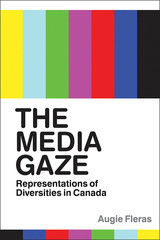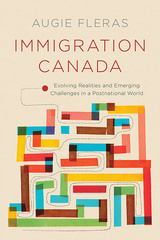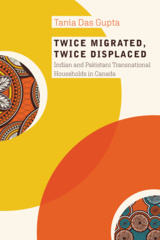
Mixed Race Amnesia is an ambitious and critical look at how multiraciality is experienced in the global north. Drawing on a series of interviews, acclaimed geographer Minelle Mahtani explores some of the assumptions and attitudes people have around multiraciality.
She discovers that, in Canada at least, people of mixed race are often romanticized as being the embodiment of a post-racial future – an ideal that is supported by government policy and often internalized by people of mixed race. As Mahtani reveals, this superficial celebration of multiraciality is often done without any acknowledgment of the freight and legacy of historical racisms. Consequently, a strategic and collective amnesia is taking place – one where complex diasporic and family histories are being lost while colonial legacies are being reinforced.
Mahtani argues that in response, a new anti-colonial approach to multiraciality is needed, and she equips her readers with the analytical tools to do this. The result is a book that takes critical race studies in new and exciting directions.
The book will be of interest to those in Canadian studies, human geography, critical race studies, sociology, and gender studies, as well as to the burgeoning numbers of mixed-race Canadians.
In Mixed Race Amnesia, Minelle Mahtani draws upon personal experiences, interviews with twenty-four women, and her own lucid analysis to challenge readers to cast aside romanticized stereotypes and develop a more nuanced understanding of what it means to be of mixed race in Canada today. This is a thoughtful, fresh, important new book.
Mixed Race Amnesia draws on theories of race, human geography, and gender studies, as well as interviews and personal diaries, to tease out the ways in which mixed race women defy, bolster, speak, and live racial categorization. Since both the author and her interviewees neither ‘live’ nor ascribe to racial authenticity, readers are shown a way through which we, collectively, might reimagine how we ‘see’ and engage with social differences.
Multiraciality is all the rage. Many people imagine mixed identities to be a social panacea – the forerunner to a happy, multicultural, nonracial future. Minelle Mahtani is not convinced. The first scholar to examine how mixedness plays out in Canadian racial politics, she tells the stories of two dozen racially complex women and questions the easy assumptions of much of the literature on multiraciality. Writers and multiracial activists would do well to consider her critique.
Minelle Mahtani is an associate professor in the Department of Human Geography and the Program in Journalism at the University of Toronto-Scarborough. Her research interests include anticolonial approaches toward the study of mixed race theory and practice; exploring the intersections between white supremacy and journalistic representations of race; and documenting and analyzing the experiences of women of colour in the academy. She is past president of the Association for Canadian Studies, 2011 Winner of the Glenda Laws Award from the Association of American Geographers, and a former national television journalist at the CBC.
Introduction: Disentangling Our Curious Affection with Multiraciality
1 Mixed Race Mythologies: Toward an Anticolonial Mixed Race Studies
2 Mixed Race Narcissism? Thoughts on the Interview Experience
3 The Model Multiracial: Propping Up Canadian Multiculturalism through Racial Impotency
4 Beyond the Passing Narrative: Multiracial Whiteness
5 Mongrels, Interpreters, Ambassadors, and Bridges? Mapping Liberal Affinities among Mixed Race Women
6 Mixed Race Scanners: Performing Race
7 Present Tense: The Future of Critical Mixed Race Studies
References
Index











